5 Filipina Moms With Different Incomes Talk About The Quality Of Life They Live
25 min readEver wondered how moms from different income brackets handle their finances? Do income and affordability affect the way they take care of their families?
This month of May, we pay tribute to hardworking moms. With all the demands of life, it takes a lot of strength to handle all kinds of responsibilities. We sat down with five mothers and listened to their stories: how they’re able to balance their personal life with work, and provide for their families in their own way.
Stella Chan, 42, business owner
Married, homeowner, Makati
Kids: One daughter, 12 years old
Educational attainment: College graduate
Gross annual income: P20 million
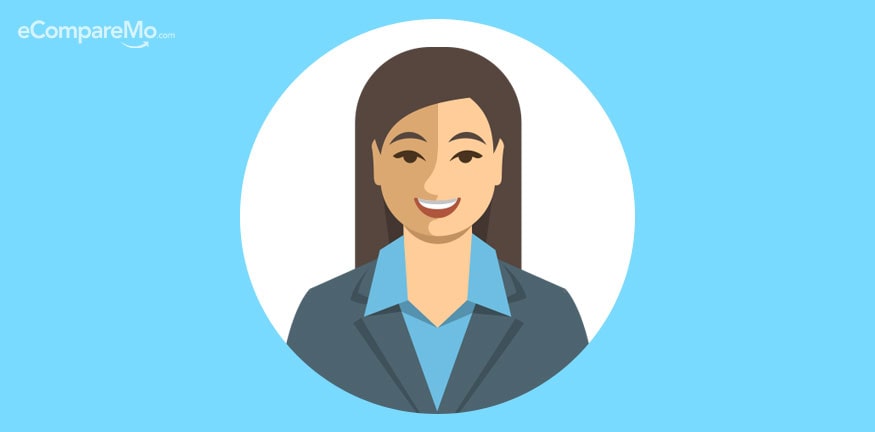
1. What’s payday like for you? How do you manage your income?
It’s more of making sure that employees are getting paid on time, rather than me getting my pay. I get my pay whenever there’s excess funds [in the company]. If I’m sure that all obligations of the company are paid for, and all the staff’s salaries are paid for, in the next few months then I get something.
I don’t allocate funds. I’m the one doing groceries and stuff, I just buy whatever I need. Utility bills are paid automatically from my bank account.
2. How much do you spend to pamper yourself?
I don’t have much time to go to the salon, let alone to the spa. So if I go to the salon, mani-pedi, spa, then it’s like P10,000. But it happens rarely, like once every three or six months.
For doctor’s appointments, it’s just the regular annual checkup. I go once every three months for checkup, but that’s about it. It’s covered by my HMO but I normally don’t do claims or charge them anymore. The paperworks are much too bothersome for me.
3. What’s the most important investment you’ve made for you or your family?
Education, I guess. My daughter studies in an international school, so the tuition fee is a lot more expensive than the normal schools.
With the globalization, I want her exposed to a global citizenry, and that means she needs to have networks that are outside our comfort zone. By the time she gets to be an adult, these are the important contacts to have. It’s the ASEAN that will drive the economy forward by 2030, not the Western world.
4. What do you currently need but can’t afford?
It’s more of a want, really. I want to have a private jet and a helicopter. I wanna be able to go wherever I want without having to deal with the airport. If I have my own private jet I just go to the airport and be on a separate tarmac, and just talk to my pilot, plot wherever I want to go, and just leave.
But then I’m looking at $17 million, so I’d rather use that in helping people, giving to charity. Other stuff that can benefit other people.
5. How do you save money?
I actually don’t, but I spend wisely, at least I would like to think of myself. I would spend around 20 percent of my income.
6. Do you have any debts or loans?
No. Just credit cards, but I pay on time. Not just the interest but the whole amount. A credit card is a tool of convenience for me. It’s not a tool for me to earn debt.
Read: (Best Credit Cards For Women In The Philippines: 2017 Edition)
7. How often do you worry about money?
All the time. I have to make sure that I have ample amount to give to the people who are under my care. That’s like a hundred people now. I worry about money all the time because I have to make sure that the business succeeds. For me, it’s not a job, but a responsibility.
I have to cautiously make sure that they hit the target revenues, so there’s justification for investors to give the business money and I can propel the company forward.
8. On a scale of 1 to 10, with 10 being the highest, how confident are you with your current quality of life?
Eight. I feel that I spend too much time working and not enough time doing whatever I should do to rest and relax. I work until two in the morning. It takes up a lot of my time. I leave the office at around 7 p.m., I go home, take care of the house–that’s the difference between a man and a woman. When a man leaves the office, they go home, and they’re done.
For me when I go home, I have to cook. After that I take care of my daughter–do her homework and make sure that everything is okay. By the time that’s done, it’s around 10:30 p.m..Then I get a downtime and relax. That’s the time I start thinking about all these ideas and start emailing people.
I sleep around 6-7 hours a day. But on the weekends I wake up around 11 a.m.
9. How much money do you need right now to live the quality of life you want?
Again, it’s more of a want. to be honest, I’m okay with whatever I have. Maybe I would want more, with whatever excess I have I’ll just put it back in the foundation. I’m always about social responsibility. I think being a [part of] a business clan, it’s not really about having enough for your own personal needs. I think that’s well taken care of if you just lived simply. It’s more of giving back to society.
We have a foundation; we have hospitals and schools. But if you’re gonna ask me what I want, then my dream is to set up my own foundation that focuses more on education.
10. Any mistakes you’ve done that cost you a lot of money?
Business-wise, yes. As an entrepreneur, you go through life making mistakes in your 20s and 30s. And then it’s considered, “Because they’re young.†So by the time you’re in your 40s, you should be able to say, I’ve had this 15 years of experience and I know enough to know what not to do.
When I was 21, I got my first stable job and since I didn’t need the money, my credit card limit was upwards to like P1 million. I bought my first Hermes bag and I spent around P500,000 for that one bag, and I only had an income of P14,000 monthly. That was the stupidest thing I’ve ever done in my whole life.
It took me two and a half years to pay for everything. I would only spend around P4,000 per month off of my salary. My parents didn’t know about it, so I had to pay for all of it.
11. As a woman, do you feel any limitations when it comes to work and in earning more money?
No. Not in the Philippines. The Philippines is actually regarded as one of the best places to work as a woman and as a leader. We get very equal pay. So in that sense I’ve never felt it.
But I have been stereotyped. We had an investor, we went there, and they thought I was the secretary, simply because I am a woman. When those things happened, I just shrugged it off. It’s a part of life. As a woman you have to have the confidence to be a leader. It is what it is and prove to them that, hey your sexism is not working here.
12. What is the most valuable lesson you’ve learned about life and money?
Never spend what you don’t have. And only spend a certain amount of your income towards your luxuries. Set a goal. Let’s say your goal is, in 10 years I want to have this much money, then you spend accordingly.
When I was 28, my goal was to own my own condo with my own money by the time I’m 33. I needed to have a downpayment of P400,000. So I was able to buy my first condominium unit worth P3 million in the early 2000s. Now I have four condo units around Makati.
You need to have a financial goal. Because if not, you’ll just save and if you don’t have an investment, then you’ll always be there wherever you are. Your goal is you should go up. If you want to step up, then have a goal.
Read: (INFOGRAPHIC: How Much Pregnancy Really Costs In The Philippines)
Chari Lopez, 55, senior executive
Single, homeowner, Quezon City
Children: Two, ages 34 and 30
Educational attainment: College graduate
Gross annual income: P5 million
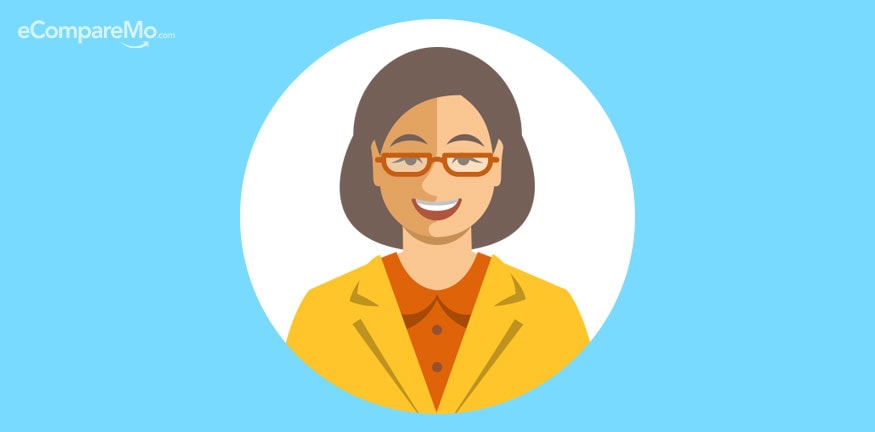
1. What’s payday like for you? How do you manage your income?
I don’t budget. I normally have an idea of how much I spend but I don’t write everything that I buy or pay for.
Almost all of my bills are on auto debit with my credit card. So I kind of know already how much I will be paying. If it goes way beyond than I normally do, that’s when I take a good look. Otherwise, I just let it be.
2. Do you find yourself spending more money on weekends than on weekdays?
Not really. I’m not a weekend kind of girl, where every weekend I go shopping. I’m not like that. But when I say I go shopping, I shop ’til I drop. I also don’t spend money on the weekdays because I’m in the office. And by the time I can leave, I’m tired. I also bring my own food in the office.
3. How much do you spend for pampering yourself?
I’m not high maintenance. But if I feel like I really want a relaxation, I go. I guess the regular one is the weekly massage, that’s home service. And it’s only P500 for an hour and a half.
4. What’s the most important investment you have made for you or your family?
Travel. For me, travel is education. So I spend most of my money splurging on travel with my family.
5. What do you currently need or want but can’t afford?
I want to go to South America, but it’s expensive and I have other priorities. I haven’t visited that continent yet. More than anything, I want to take photographs. I also wanna go on an African safari in South Africa.
I also want to go to Antarctica [and experience being in an] Ice Breaker Ship. But it’s about $12,000 to $15,000. But I have to think of my old age first. I should stop thinking of the spend. These are all just wants, but not a need.
What I need most are things that I don’t need to spend money on.
6. How do you save money?
Real estate. And maybe jewelry. But I’ll be honest, with jewelry, I buy because I like it. As much as possible I don’t save money on my bank account. In short, I’m not liquid. Like right now, I’m done paying for my newest purchase so I need to look for a new real estate property.
Back then, I started with a time deposit, but the interest is too small. So I bought my first real estate property. It was my mom who gave me the idea to invest in real estate.
7. Do you have any debts/loans?
Not anymore. Actually back then it’s really more real estate. When you buy property you can pay amortization where you buy, like pre-selling, but I never had to borrow money from the bank. Only because I was a banker. So early in my career, I was lucky that I had car benefits. So I never had to borrow or shell out money for a car.
Even buying my own house, it came from work benefits. There was very small interest.
8. How often do you worry about money?
Now, not really. It’s only when I think about getting old, and not wanting to burden my children. I don’t have enough retirement savings yet.
I just worry about getting old and getting sick and not having enough. So I never limit on my global health insurance. This is for when I get hospitalized. It will cover everything, and I pay almost $5,000 annual.
9. On a scale of 1 to 10 with 10 being the highest, how confident are you with your current quality of life?
It would be good to have someone to share it with, like a partner, but otherwise, I’m happy. So I would rate it nine. I have two children, I eat three times a day. I have a grandson, and now I’m waiting for the birth of my granddaughter.
10. How much money do you need right now to live the quality of life you want?
I can think of so many things I can buy if it’s only about luxury. Maybe if my family can go on a grand tour in style once a year, I’ll be happy. Maybe easily times two [of my annual income]. But what if I want to buy a house say, in Spain, when we go on vacation, so maybe I will need $1 million.
But I think double the annual income is good. Only because I want to be able to have more investments that will assure me of a good old age without having to bother my sons. I want my children to live their lives without having to worry about their mom.
11. Any mistakes you’ve done that cost you a lot of money?
None. So far I’ve been good. I have never bought property that depreciated.
12. As a woman, do you feel any limitations when it comes to work and in earning more money than men?
None. I think I’ve reached the top of the glass ceiling. I became bank president, and when I sit in the board, I’m the only woman. I’ve never felt inadequate. I never felt that I was any less. And I think because I grew up in an environment where both my mother and my father were very accomplished and they really pushed each one of us.
We’re three siblings. It was difficult at times, especially being the eldest, they had very high expectations. But I’m glad because we’re all very accomplished in life.
13. What is the most valuable lesson you’ve learned about life and money?
Share what you have. Never forget where you came from, and respect everyone. Some people, they let success get into their heads. The minute you start thinking of yourself as really a big person, you stop improving. So always remain humble; after all, all your achievements are not just yours.
There’s no such thing as insignificant. Be good to everyone. And pay your blessings forward. My advocacy has always been education, so part of what I get, I help.
Read: (7 Tips For Working Moms On Balancing Family And Career)
Maria Bondoc, 35, small business owner
Married, homeowner, Cavite
Children: Two daughters, ages 12 and 8
Educational attainment: College graduate
Gross annual Income: P520,000
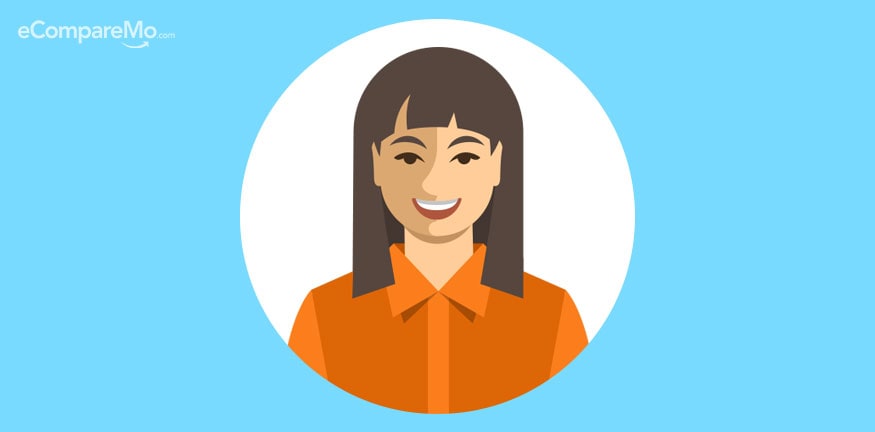
1. What’s payday like for you? How do you manage your income?
Payday is just like any ordinary day for me. Every 15th of the month I have to allocate a budget for my daughters’ service fee payment that’s about P5,000, allowance for my eldest P1,500, grocery allowance P2,000, plus market and grocery allowance of P3,500. My allowance is P2,000 and P2,000 goes to leisure time with the family.
Every 30th is my tightest period because I have to pay utility bills. For electricity P3,500, for cable subscription 290, for our postpaid lines a total of P5000 for the four (4) of us. Water bill average monthly bill is about P400. Plus our HOA fees of P520 monthly.
Most of the time I run short every 30th so I have to ask assistance from my husband and I call it “financial aid.â€
2. Do you find yourself spending more money on weekends than on weekdays?
Yes, because on weekdays I only spend for my commuting expense and cigarettes.
3. How much do you spend for pampering yourself?
The only pampering I have for myself is my monthly visit to the salon.
4. What’s the most important investment you have made for your family?
We have our own home under mortgage and that is the most important investment we have right now. We also built a restaurant from our savings, so that also counts as a good investment for my family.
5. What do you currently need but can’t afford?
Honestly I need a condo unit for my children. So when they are both in college, they will have their own place to stay.
6. How do you save money?
I save money from my husband’s income and we set aside at least 10 to 20 percent and deposit it to our savings account.
7. Do you have any debts or loans?
Just credit cards. I already paid off my personal loan.
8. How often do you worry about money?
Rarely, since my husband’s income is steady and we have a buffer of at least three months of our monthly obligations like house, car, etc.
9. On a scale of 1 to 10, 10 being the highest, how confident are you with your current quality of life?
I would say eight. Because we can afford to buy a house and a car, plus business with enough savings. then our two kids are both studying in private schools. We also go on out for our family day every weekend.
10. How much money do you need right now to live the quality of life you want?
P150,000 per month because we have that much payables and expenses every month. And then P50,000 for our travel abroad.
11. Any mistakes you’ve done that cost you a lot of money?
Buying small and unnecessary things like bags and shoes. Before I used to buy a pair of shoes and bag every payday. If I compute that’s like P1,500 to P2,000 extra expense every month.
12. As a woman, do you feel any limitations when it comes to work and in earning more money? If Yes, please elaborate.
No. Every woman can manage to do the things that men can.
13. What is the most valuable lesson you’ve learned about life and money?
Enjoy life, embrace it, and don’t worship money. Money is just money. Share whatever you can. You can always earn the money so don’t hesitate to give and spend.
Leah Andres, 34, overseas Filipino worker (OFW)
Single mom, homeowner, Bacolod
Kids: Single Mother of three, ages 16, 12, and 10
Educational attainment: College undergraduate
Net annual income: P324,000
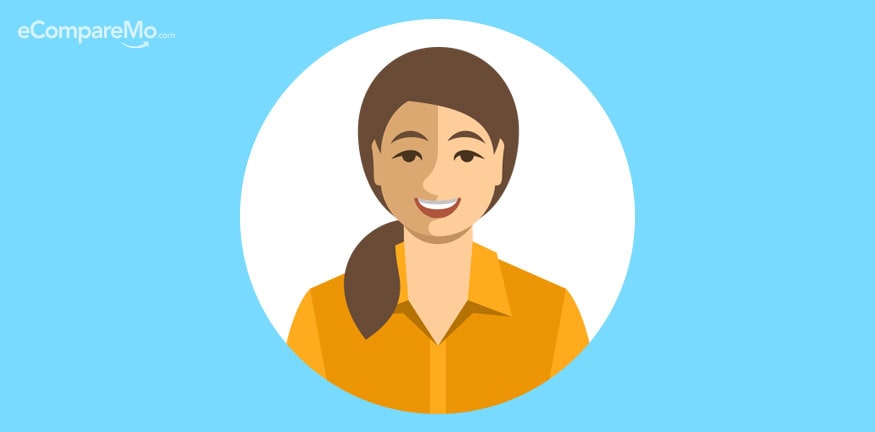
1. What’s payday like for you? How do you manage your income?
Ninety percent of my monthly salary goes to household expenses, school kids’ budget, and bills at home. I send the money via a local money remittance company so it’s cheaper, and I let my mom do the budgeting for my kids’ allowances and their food.
2. Do you find yourself spending more money on weekends than on weekdays?
I don’t really go out often so I can save more money. Sometimes I buy inexpensive clothes, but that’s about it.
3. How much do you spend for taking care of or pampering yourself?
I leave about AED300 [Emirati Dirhams, about P3,927] for myself and spend it on vitamins, sometimes clothes, and treat myself to food I like to eat. My boss provides food for free but sometimes I don’t like it. Instead of eating so little on free food, I’d buy my own food.
4. What’s the most important investment you have made for you or your family?
Paying for my family’s house. Now I only need P35,000 to complete the payment, and I’ll pay it in full on December. It’s a rent-to-own house and lot and I paid it in installment for three years. It still needs some renovation as it’s an old house, but we’ll fix it next year. I also consider my children’s education as a huge investment since I transferred my two girls in private school this year.
5. What do you currently need but can’t afford?
I’ve always wanted to buy a van that I can rent out for transport services in my hometown, and I would like to own a grocery store.
6. How do you save money?
I make it a point to save at least AED200 in my bank account every payday. My work depends on my good health and well-being so I need to save and be ready in case of emergency.
7. Do you have any debts?
I don’t have any. I’m scared of debts.
8. How often do you worry about money?
All the time. Especially because my mother needs maintenance medicines. P3,000 goes to her hypertension medicines every month. I’m the only one who provides for my family that includes my older brother. I’m under a lot of stress because there’d be times when my salary is not enough to cover everything they need and it’s really hard.
9. On a scale of 1 to 10 with 10 being the highest, how confident are you with your current quality of life?
Eight. I’d call it survival because we were still able to get by through it all. And I’m very happy to see my three girls growing up knowing that I was able to provide for them.
10. How much money do you need right now to live the quality of life you want?
P50,000 is all I really need right now so I can get the house fully paid.
11. Any mistakes you’ve done that cost you a lot of money?
None.
12. As a woman, do you feel any limitations when it comes to work and in earning more money?
None at all.
13. What is the most valuable lesson you’ve learned about life and money?
You need to save money even if it’s just small. And to avoid debt at all costs. Once you start borrowing money, it’s hard to break the habit.
Read: (What Is The Cost Of Being A Housewife?)
Jessa Balinas, 41, Housekeeper
Single mom, homeowner, Marikina City
Children: Three, ages 13, 10, and 7
Educational attainment: College undergraduate
Gross annual income: P96,000
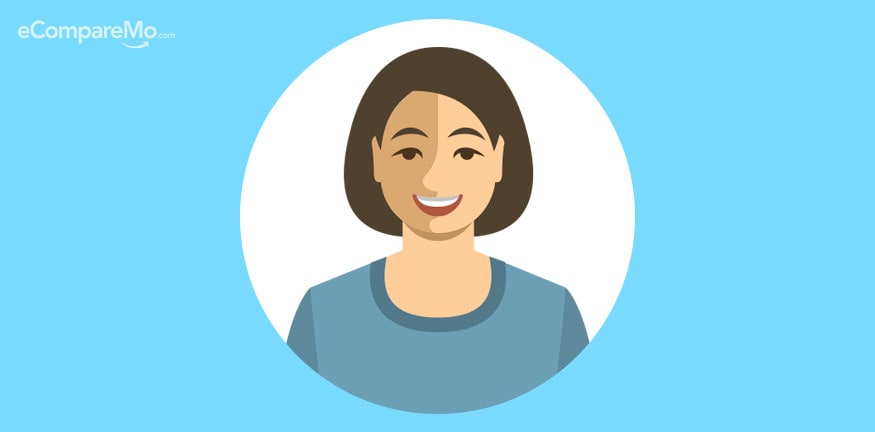
1. What’s payday like for you? How do you manage your income?
It goes to food, and paying for utility bills. Now I’m not renting anymore because my mother-in-law let me stay at the back of their house since last year.
I spend around P2,500 per month for food. When I get paid, I buy a week’s worth of groceries worth P1,600. But the expenses for buying food every day, that’s more costly. The canned goods are for emergencies, when we don’t have money to buy food anymore.
2. Do you find yourself spending more money on weekends than on weekdays?
Weekday. Because weekend is budgeted already. Allowance for kids in school, and school projects. Now it’s summer, it’s even costlier because my kids ask me money for snacks and food. It’s like there’s only a two-hour interval for them to get hungry again.
It’s better if they’re in school. They’re studying the whole day so they’re busy and they don’t keep asking me for money.
3. How much do you spend for taking care of yourself?
Actually, I don’t get to spend any. I’m on a really tight budget. so sometimes, even when I’m not feeling well, I still provide for my kids. Even the food that I’m going to eat, I still give it to them. I can’t buy vitamins because my income is just enough to buy food.
4. What’s the most important investment you have made for yourself or for your family?
Education. It is very important that they study even if we’re short on money. It’s for their own good, so they don’t end up like me. I didn’t study well. I regret not being able to finish nursing in PUP. It was because I also worked in a factory and would always come to class tired. So I quit.
I told them to study hard while I can still provide for them, because no one will take care of them when I’m old and can’t work anymore.
And also the tablet I bought them when I came from Korea as a domestic helper last year. They use that for games mostly but also for research with their homework.
5. What do you currently need but can’t afford?
I want to have my own house. Our place is going to be demolished. We live in Parang, Marikina, in Buntong Palay. If that happens we’ll move to a bigger house, with my brother in Montalban. But I don’t get along well with my sister-in-law. So I really want to have my own house.
I also want to save for my kids’ education. But having my house is more important because I can’t afford to pay for rent. I need to save money to go back to work in Korea.
6. How do you save money?
Most of the time I can’t save money. Back then when my ex-husband has work, I can save money. Now I really have nothing left for savings. I am planning to be an OFW in Korea again. I’m worried if my kids get sick. I have no money for emergency at all.
Whenever there’s an emergency I get scared. I don’t know where to get the money. My youngest daughter has mumps right now and then if she has high fever she gets convulsions so there should always be medicine ready at home. She’s 7 now, this all started when I left her to work in Korea when she was only six months old. That’s why now every time she has a fever I immediately have to buy her medicines.
7. Do you have any debts or loans?
Yes. From 5-6. But I know I paid for it already. Those are just interests. it incurred so much interest from my P5,000 debt.
When I was in Korea, I sent my husband P32,000 to pay for all my debts. When I came back, the 5-6 lender said I owed them P20,000. That P5,000 incurred so much interest. My husband insisted that he paid for it already, and I got so mad because I knew he was lying.
Now the person who I owe money to is sick, but when I have money I still pay for it. I don’t really know how much I still owe them, but I still know that I already paid for it.
8. How often do you worry about money?
If I don’t have work at all, I worry. What if our food stock runs out? It’s hard to borrow money; it’s embarrassing. But if I have work, it’s okay even if I borrow money or loan at sari-sari stores because I know I will get paid.
9. On a scale of 1 to 10, 10 being the highest, how happy are you with your current quality of life?
Five. I don’t have a husband so it’s hard. I’m the only one who has to earn money. For work, I’m okay.. I’m contented with work right now, and I’m also applying for another job in the Middle East. And as long as my kids are healthy I’m okay.
10. How much money do you need right now to live the quality of life you want?
Even if just half a million. Or no, five million. P500,000 is not enough. I want to have my own house, simple business, so I don’t have a boss anymore. My No. 1 priority is a house. So I would have peace of mind and not worry so much anymore.
Even if we don’t have enough food, at least we have our own place to call home.
11. Any mistakes you’ve done that cost you a lot of money?
Choosing a husband. I was already tired of working in Korea as a DH, but when I arrived my husband still did not have any work, and when I came home I bought a lot of appliances for our house. After a few months I had to sell and pawn all those appliances so we can have money and food on the table again.
He never looked for a job. It also took a long time for me to process my application to go back to Korea. He never gave me the support I needed in a husband at all.
12. As a woman, do you feel any limitations when it comes to work and in earning more money?
No. I think it’s just equal. I think women are more budget-savvy than men. If men don’t like their work, they quit without even thinking so much about it. As for women, even if they don’t like their job, they sacrifice. They stay for the sake of their families.
13. What is the most valuable lesson you’ve learned about life and money?
If I earn money, my family is happy. I learned to work without asking help from anyone, for the sake of my kids.
I learned to be strong for my kids because I’m a single mother. It’s costly. When I have money, I spend it easily. I buy the things we need. But I learned better. I learned that when you have money, people show up and are nice to you. But if you don’t, they lie to you and even try to avoid you when they have money.
Since I sold all my appliances and lost all my money, my friend helped me find a job as a house help. I learned that there will always be people who are willing to help you in desperate times.
